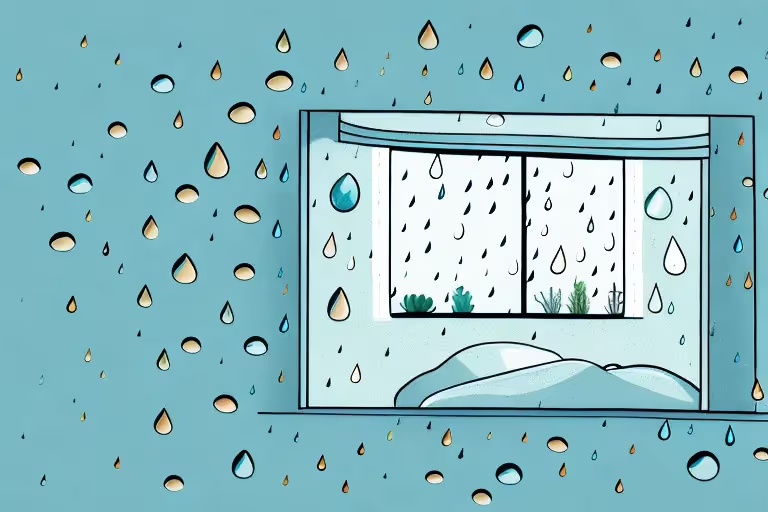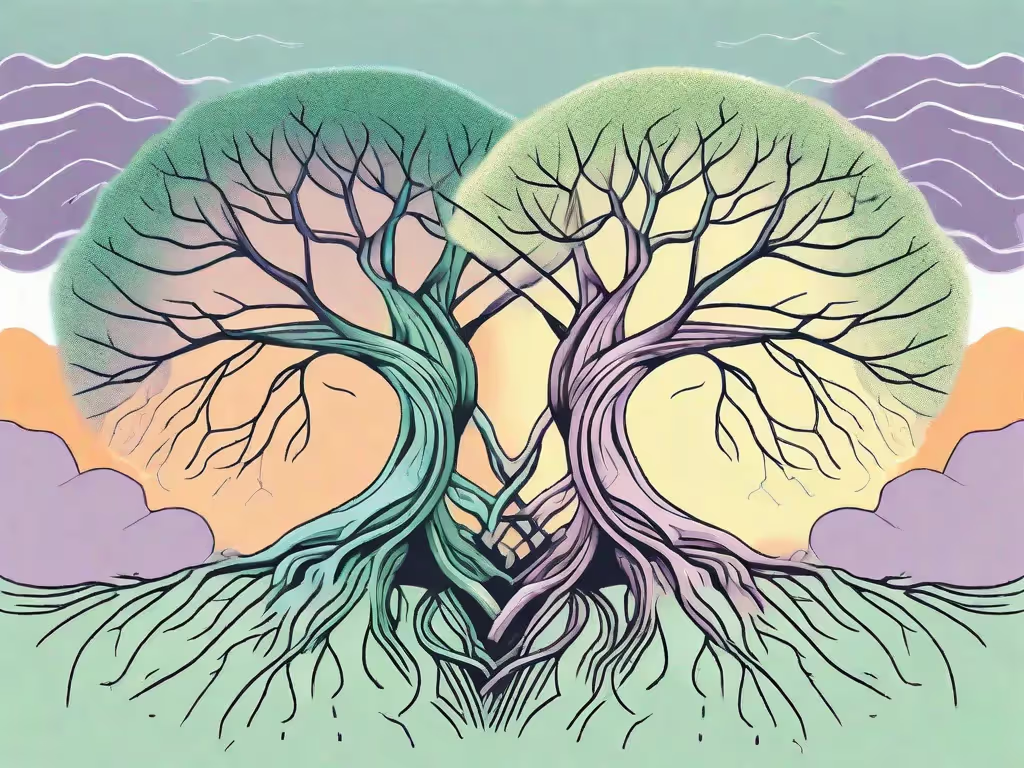Welcome to a fun-filled, interesting dig into the world of psychology! We're exploring the fascinating concept of age regression and its manifold mysteries.
What is Age Regression?
Settle in folks, because age regression is a rollercoaster ride! It's like a time-travelling expedition into the past of your mind. Age regression is when your mind decides to do a bit of time-hopping and re-experience emotions or behaviors from yesteryears.
But there's more to it than playful temporal gymnastics! It's often a coping mechanism, a way the mind seeks solace in the familiarity of earlier stages of life.
Imagine this: you're sitting in a cozy armchair, wrapped in a soft blanket, sipping on a cup of hot cocoa. The crackling fire in the fireplace warms your soul as you flip through an old photo album, filled with memories of your childhood. Suddenly, you feel a wave of nostalgia wash over you, and you find yourself transported back in time, reliving those carefree days.
The smell of freshly baked cookies fills the air as you watch your younger self playing in the backyard, the sound of laughter echoing in your ears. You can feel the grass tickling your bare feet and the warm sun kissing your skin. It's a moment of pure bliss, an escape from the worries and responsibilities of adulthood.
The Psychology Behind Age Regression
So what makes our magnificent minds hop on this time-traveling escapade? Let's peel back the curtain! Age regression can be a response to stressful situations. Our minds may retreat to a time when life was simpler or safer, like a turtle retracting into its shell.
Picture this: you're standing at the edge of a cliff, the wind blowing through your hair, and the vast expanse of the ocean stretching out before you. The weight of the world rests on your shoulders, and the pressure becomes too much to bear. In that moment, your mind takes you by the hand and leads you down a hidden path, away from the edge, and into the comforting embrace of your childhood home.
You step through the front door and are greeted by the familiar scent of your favorite home-cooked meal. The sound of your parents' voices fills the air, and you can feel the warmth of their love enveloping you. It's a sanctuary from the chaos of the present, a safe haven where you can temporarily escape the demands of adulthood.
It's a psychological retreat, an escape route from overwhelming current experiences, and sometimes, it's even involuntary! Our minds have a remarkable ability to protect us from the harsh realities of life by allowing us to revisit moments of innocence and joy.
Access On-Demand Hypnosis for Any Challenge You're Facing.
Try it Free!
Different Types of Age Regression
Did you know age regression comes in different flavors? Like a Baskin-Robbins for your brain! You've got emotional regression, where feelings from your past play peek-a-boo. And then, there's behavioral regression which manifests in previous behaviors, like thumb-sucking or throwing a temper tantrum!
Imagine this: you're sitting in a colorful room filled with toys, your tiny hands clutching a teddy bear. The room is filled with the sound of children's laughter and the occasional cry. You find yourself surrounded by a whirlwind of emotions - happiness, sadness, anger, and excitement - all at once.
Your younger self is experiencing a rollercoaster of feelings, just like you are now. It's a reminder that emotions are not bound by time, and they have a way of resurfacing when we least expect them. Emotional age regression allows us to tap into these buried emotions, giving us the opportunity to process and heal from past experiences.
Now, let's talk about behavioral age regression. Imagine this: you're sitting at a desk, surrounded by piles of paperwork, deadlines looming over you like dark clouds. The stress is suffocating, and you find yourself yearning for a simpler time.
In a moment of frustration, you throw your pen across the room, just like you used to do as a child when things didn't go your way. It's a temporary regression to a behavior that once helped you cope with feelings of powerlessness. While throwing a temper tantrum may not be the most socially acceptable response as an adult, it serves as a reminder that our past behaviors can resurface when we're overwhelmed.
Age regression is a fascinating phenomenon that allows us to revisit our past selves, offering us comfort, healing, and a deeper understanding of who we are. So the next time you find yourself taking a trip down memory lane, embrace it, for it is a gift from your magnificent mind.
Identifying Age Regression Symptoms
Now that we're familiar with the concept of age regression, let's play detectives and hunt for its clues in our daily lives.
Emotional Symptoms of Age Regression
Feel like you’re on an emotional rollercoaster? You may be experiencing the emotional symptoms of age regression. Mood swings, extreme sensitivity, or suddenly feeling like a scared child could all be indications of age regression. The emotional landscape can become quite a tricky maze to navigate!
Age regression can manifest in various ways emotionally. For example, you might find yourself becoming easily overwhelmed by situations that wouldn't typically affect you. It's as if you're transported back to a time when you had less control over your emotions. Additionally, you may notice that certain triggers, such as specific smells or sounds, elicit strong emotional responses that seem disproportionate to the present moment.
Another emotional symptom of age regression is the tendency to seek comfort and reassurance from others, much like a child would. You may find yourself craving hugs or wanting someone to hold your hand during times of stress or uncertainty. This need for external support can be a clear indicator that age regression is taking place.
Physical Symptoms of Age Regression
Physical signs of age regression can sometimes be subtler, but they can still provide valuable clues. One such sign is changes in voice. You may notice that your voice sounds higher-pitched or more childlike during episodes of age regression. This alteration in vocal tone can be a result of the body reverting to patterns of speech from earlier stages of development.
In addition to changes in voice, physical symptoms of age regression can also include regressing to past stammers or speech difficulties. If you find yourself struggling with speech patterns that you had overcome in the past, it could be a sign that age regression is occurring. Similarly, bed-wetting, although more commonly associated with childhood, can also be a physical symptom of age regression. If you suddenly find yourself experiencing bed-wetting episodes after being dry for years, it may be worth considering the possibility of age regression.
Behavioral Symptoms of Age Regression
Imagine finding yourself wanting to play with your old Barbie collection or Pokémon cards out of the blue! Such sudden urges, as well as changes in language usage or preferences, can indicate behavioral age regression. These behavioral symptoms often involve a desire to engage in activities or behaviors that were more typical of your childhood self.
Behavioral age regression can also manifest in the way you interact with others. You may find yourself seeking out parental figures or authority figures for guidance and support. This can include relying heavily on their opinions and decisions, as well as seeking their validation and approval in a way that is reminiscent of a child seeking parental love and acceptance.
Another behavioral symptom of age regression is a shift in responsibilities and decision-making. You may feel overwhelmed by adult responsibilities and long for a time when someone else took care of everything for you. This can lead to a desire to escape from adult responsibilities and revert to a more carefree and dependent state.
In conclusion, age regression can present itself through a variety of symptoms across different aspects of our lives. Emotional symptoms can include mood swings and a heightened sensitivity, while physical symptoms may involve changes in voice or the recurrence of past developmental stages. Behavioral symptoms can manifest in the form of sudden urges to engage in childhood activities and seeking out parental figures for guidance and support. By recognizing and understanding these symptoms, we can gain a deeper insight into our own experiences of age regression.
Causes of Age Regression
What triggers this psychological time travel, you ask? Let's do some root cause analysis!
Trauma and Age Regression
Our mind's a delicately crafted labyrinth, and trauma can cause some serious shifts. When faced with major traumatic events, our minds might opt for time-travel to safer, happier times!
Imagine a young child, innocently playing in their backyard. Suddenly, a loud noise shatters the peaceful atmosphere, causing the child to freeze in fear. This traumatic event leaves a lasting impact on their psyche. As they grow older, similar loud noises may trigger a regression to that innocent time, when the world felt safe and secure.
Furthermore, trauma can create a sense of powerlessness and vulnerability. Age regression allows individuals to retreat to a time when they had less responsibility and were under the care and protection of others. It becomes a coping mechanism, a way to temporarily escape the harsh realities of the present.
Stress and Age Regression
Oh, we've all been there! The modern world can sometimes feel like tiptoeing through a minefield, and intense stress can trigger age regression. It's like our minds hightailing it to a less stress-filled era!
Picture a worn-out professional, overwhelmed by the demands of their job. The pressure to meet deadlines, handle difficult colleagues, and navigate a competitive environment takes its toll. In moments of extreme stress, the mind seeks refuge in simpler times. It yearns for the carefree days of childhood, where responsibilities were minimal and the biggest worry was finishing homework before playtime.
Age regression in response to stress serves as a temporary escape from the overwhelming adult world. It provides a brief respite, allowing individuals to recharge and regain their emotional balance before facing the challenges that await them.
Mental Health Disorders and Age Regression
At times, mental health disorders like PTSD, anxiety, or dissociative disorders can also play a role in triggering age regression. It's like your mental health waving a neon sign saying, "Time for a detour!"
Imagine a person who has experienced a traumatic event that has left deep emotional scars. They may develop post-traumatic stress disorder (PTSD), where flashbacks and intrusive memories of the trauma plague their daily life. In an attempt to cope with the overwhelming emotions, their mind may resort to age regression as a defense mechanism.
Additionally, individuals with anxiety disorders may find solace in age regression during times of heightened anxiety. By regressing to a time when they felt safe and secure, they can momentarily escape the grip of anxiety and find comfort in familiar surroundings.
Dissociative disorders, such as dissociative identity disorder (DID), can also contribute to age regression. In DID, different identities or "alters" exist within one person. Some alters may be stuck in a specific age or time period, leading to age regression when they are in control of the individual's consciousness.
Understanding the causes of age regression can shed light on the complex interplay between our minds and our experiences. It is a fascinating phenomenon that highlights the intricate ways in which our psyche navigates the challenges of life.
The Impact of Age Regression on Daily Life
Age regression can add a wild twist to your everyday script. From personal relationships to professional settings, buckle up for the ride!
Age Regression in Personal Relationships
Ever find yourself responding to your partner or loved ones like a sulky teen or a temperamental child? While it can cause friction, it’s just a sign of age regression taking center stage.
Age regression in personal relationships can manifest in various ways. For example, you may suddenly feel the need to throw a tantrum when things don't go your way, just like a toddler. Your partner may be left bewildered, trying to navigate this unexpected behavior. On the other hand, you might find yourself seeking constant reassurance from your loved ones, craving their attention and care like a young child.
Furthermore, age regression can also impact communication within personal relationships. You may find yourself using simpler language, struggling to articulate your thoughts and emotions effectively. This can lead to misunderstandings and frustrations between you and your partner, as they struggle to grasp the meaning behind your childlike expressions.
Age Regression in Professional Settings
At work, those sudden urges to doodle in a notebook during a meeting or speak in a baby voice can be curious signs of age regression. It’s like your inner child showing up at the most unexpected corporate party!
Age regression in professional settings can have both positive and negative consequences. On one hand, it can spark creativity and out-of-the-box thinking. When your mind taps into a childlike state, you may find yourself coming up with innovative ideas and solutions that others may not have thought of. Your childlike curiosity can drive you to explore new possibilities and challenge conventional norms in the workplace.
On the other hand, age regression can also pose challenges in professional settings. Your inclination to doodle or engage in childlike behavior during important meetings or presentations may be perceived as unprofessional or distracting. Colleagues and superiors may struggle to take you seriously, hindering your professional growth and opportunities for advancement.
Additionally, age regression can impact your ability to handle stress and pressure in the workplace. Just like a child, you may feel overwhelmed and resort to avoidance or seeking constant reassurance from others. This can hinder your productivity and ability to meet deadlines, leading to potential setbacks in your career.
In conclusion, age regression can have a profound impact on daily life, both in personal relationships and professional settings. While it can add excitement and a unique perspective to your experiences, it also presents challenges that need to be navigated with care. Understanding and managing age regression can lead to a better understanding of oneself and improved relationships with others.
Treatment Options for Age Regression
So, how do you steer your mind out of this time warp? There are several treatments available, from therapy to medication and self-care strategies. Let's unpack these, shall we?
Psychotherapy for Age Regression
Psychotherapy can be a magical wand waving away the inconveniences of age regression. A skilled therapist can help you navigate your mind’s labyrinth and steer it back to the present.
Medication and Age Regression
Sometimes, a little pharmacological assistance is needed. Medications can help manage any underlying mental health conditions that may be causing or contributing to the regression.
Self-Care Strategies for Managing Age Regression
And let's never forget the power of self-love! Self-care strategies like mindfulness exercises, meditation, and relaxation techniques can all be effective tools in managing age regression.
Case Studies on Age Regression
Let's take a brief peek at the cases of humans triumphing over age regression!
Successful Treatment of Age Regression
Meet Jane, who with regular therapy and medication, managed to pull the brakes on her mind's rewind button! So yes, overcoming age regression is a reality!
The Long-Term Effects of Untreated Age Regression
On the flip side, there's Mark, who ignored his age regression symptoms. His relationships soured and work life suffered. Don’t be a Mark!
Remember, understanding and addressing age regression can lead to immense personal growth and better quality of life. And guess what? The Aura Health App can be a part of your tour guide in this journey of self-discovery and mental wellness! It provides a variety of mindful activities and resources that can aid in managing age regression. With the right knowledge and tools, managing age regression can be a piece of cake. And the Aura Health App is definitely the cherry on top!
Aura is Your All In One App for Meditation, Mindfulness Wellbeing
Find peace every day with one app for your whole well-being. There is no one-size-fits-all solution to mental well-being. Aura is the first all-in-one wellness app that learns how to best help you. Discover an endless library of expert-created tracks for your well-being, all taught by the world’s best coaches, therapists, and storytellers. With Aura's personalized recommendations, you can find peace every morning, day and night.



.webp)






.avif)

%20(1).avif)


.avif)
.avif)
.webp)


.avif)


















































































































.avif)

















.svg)









